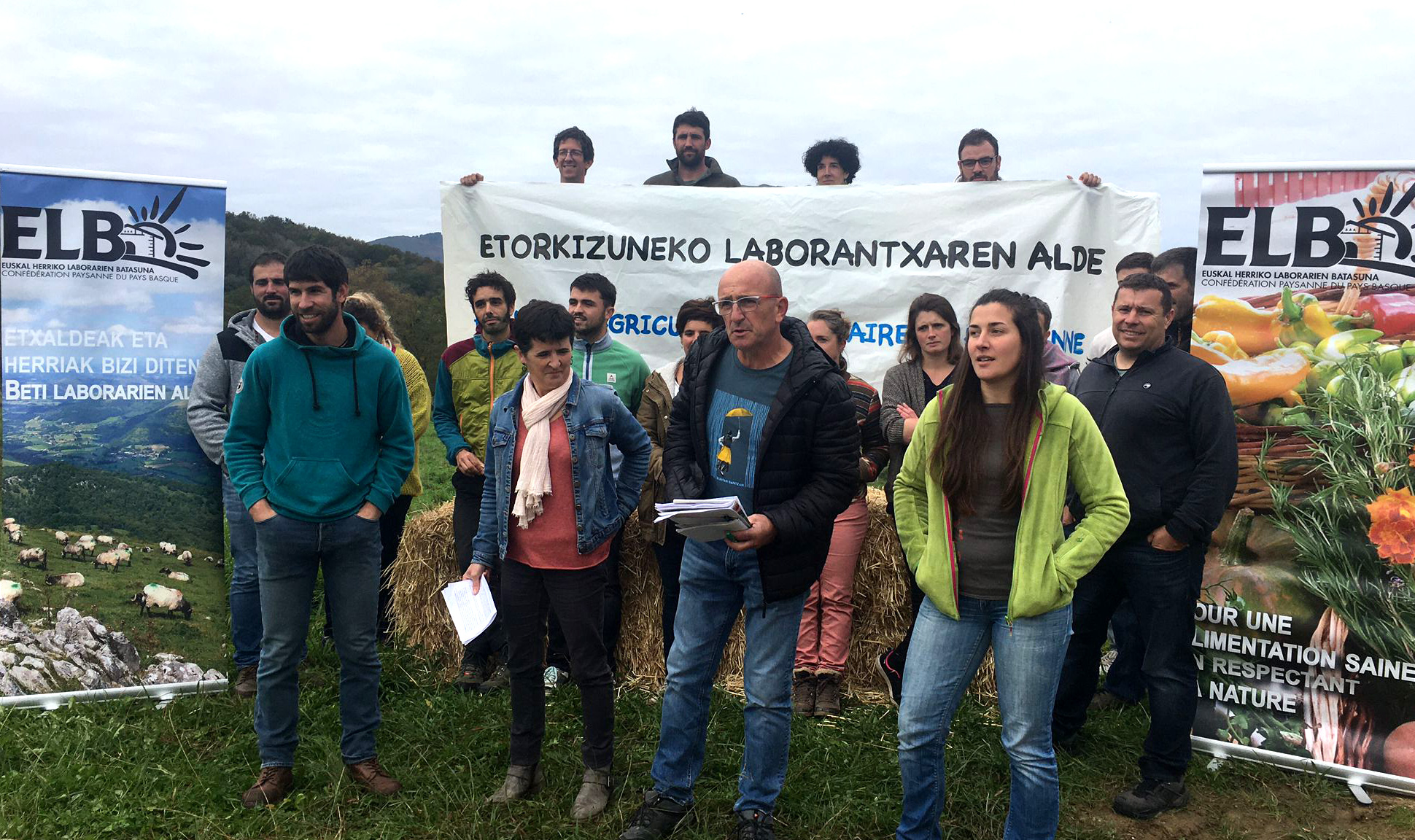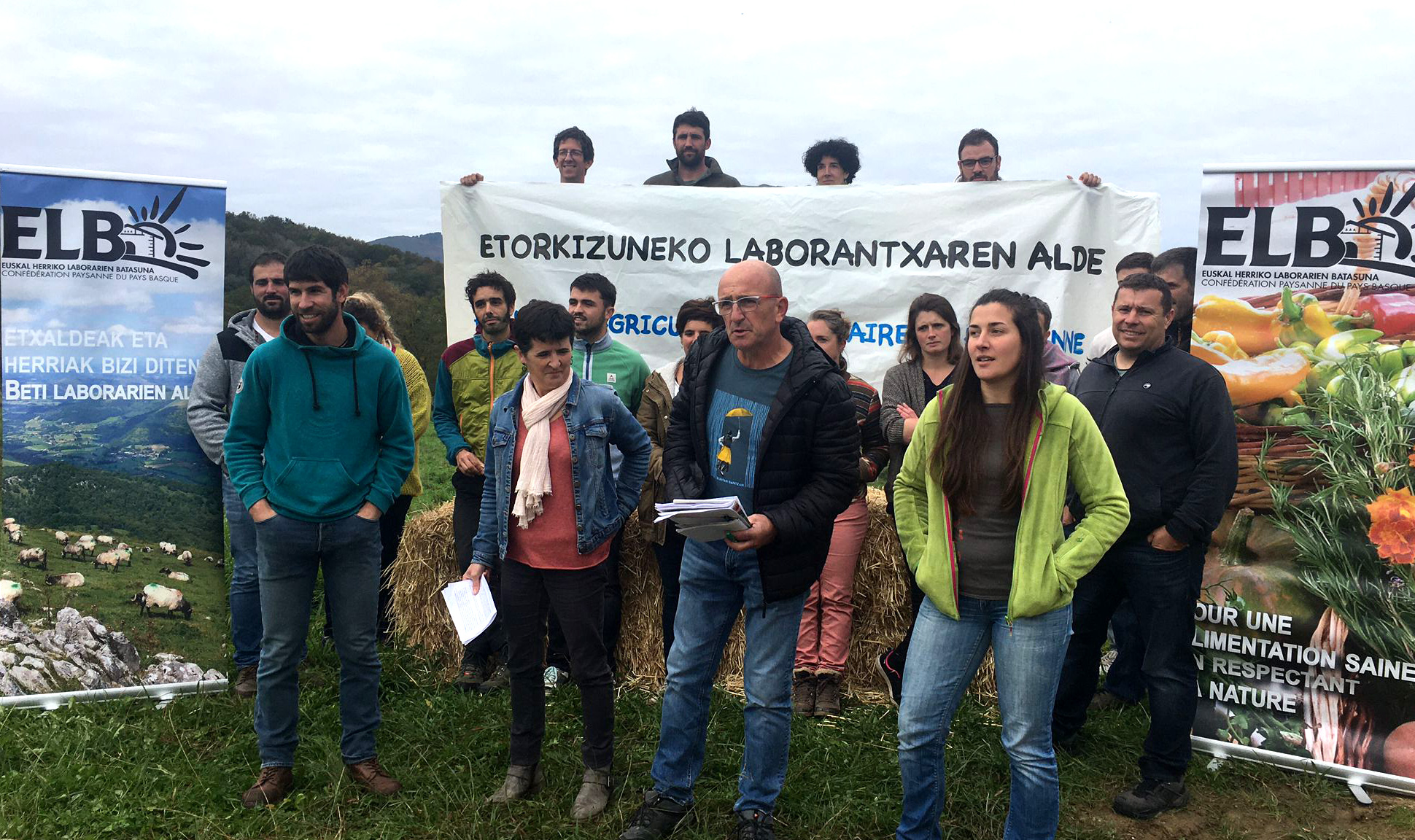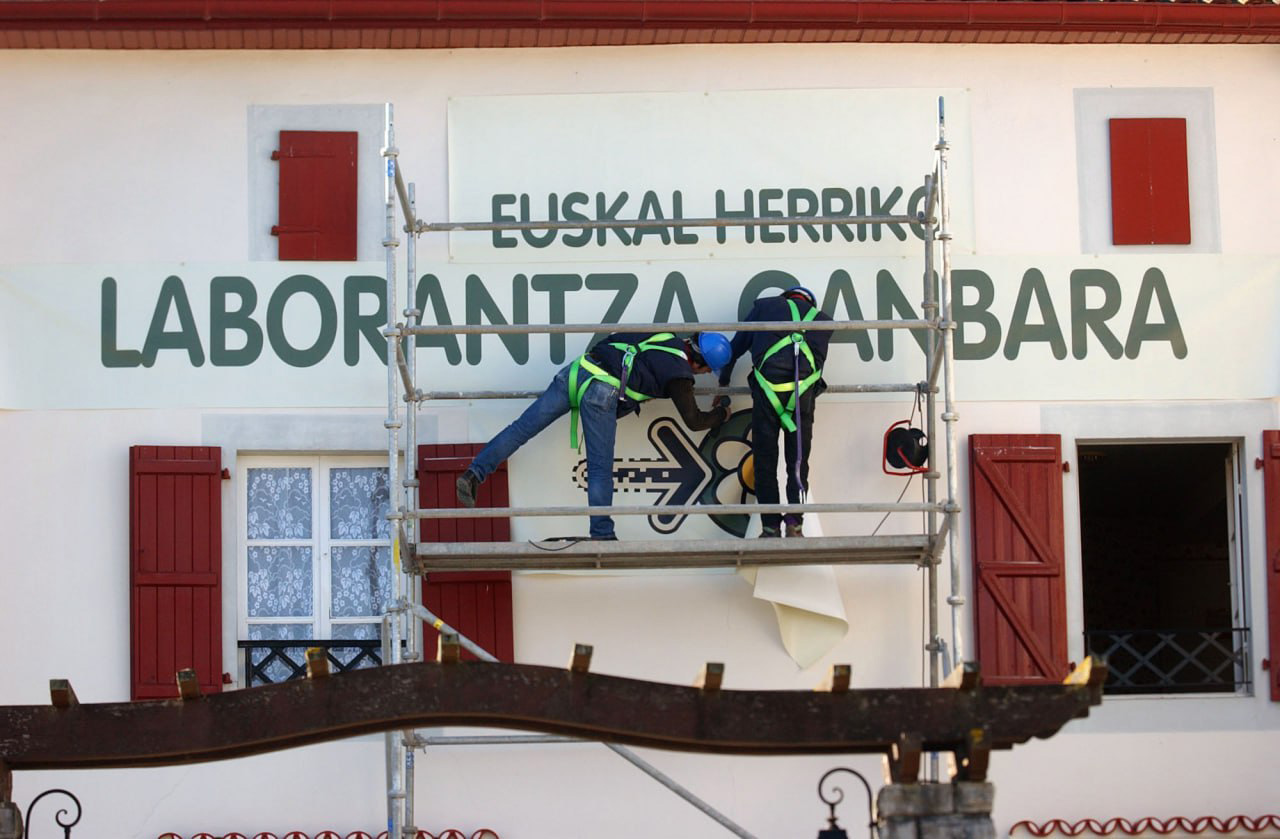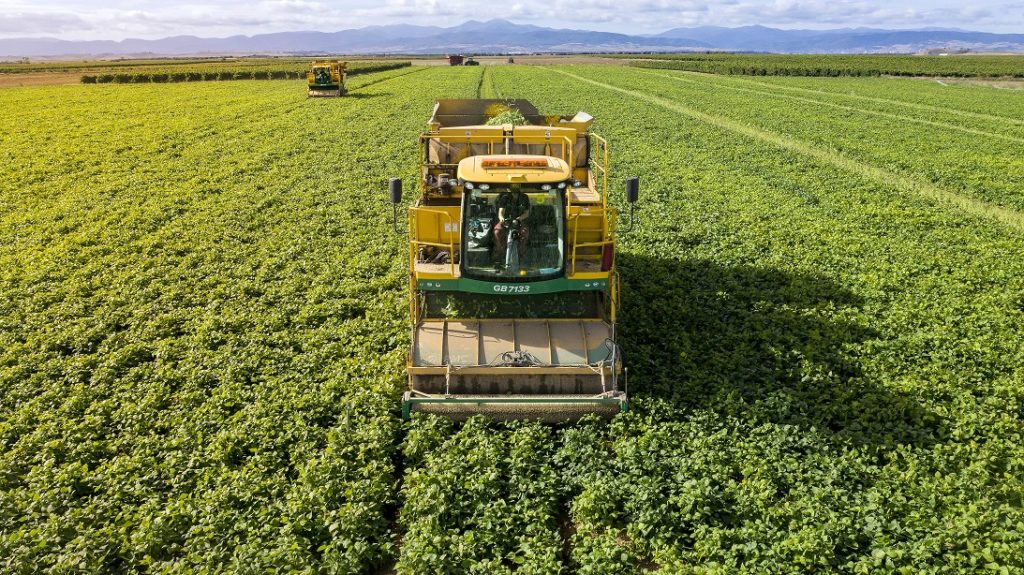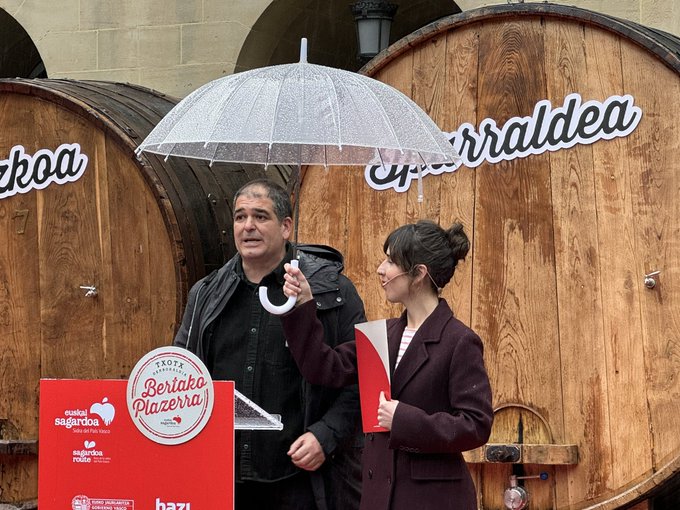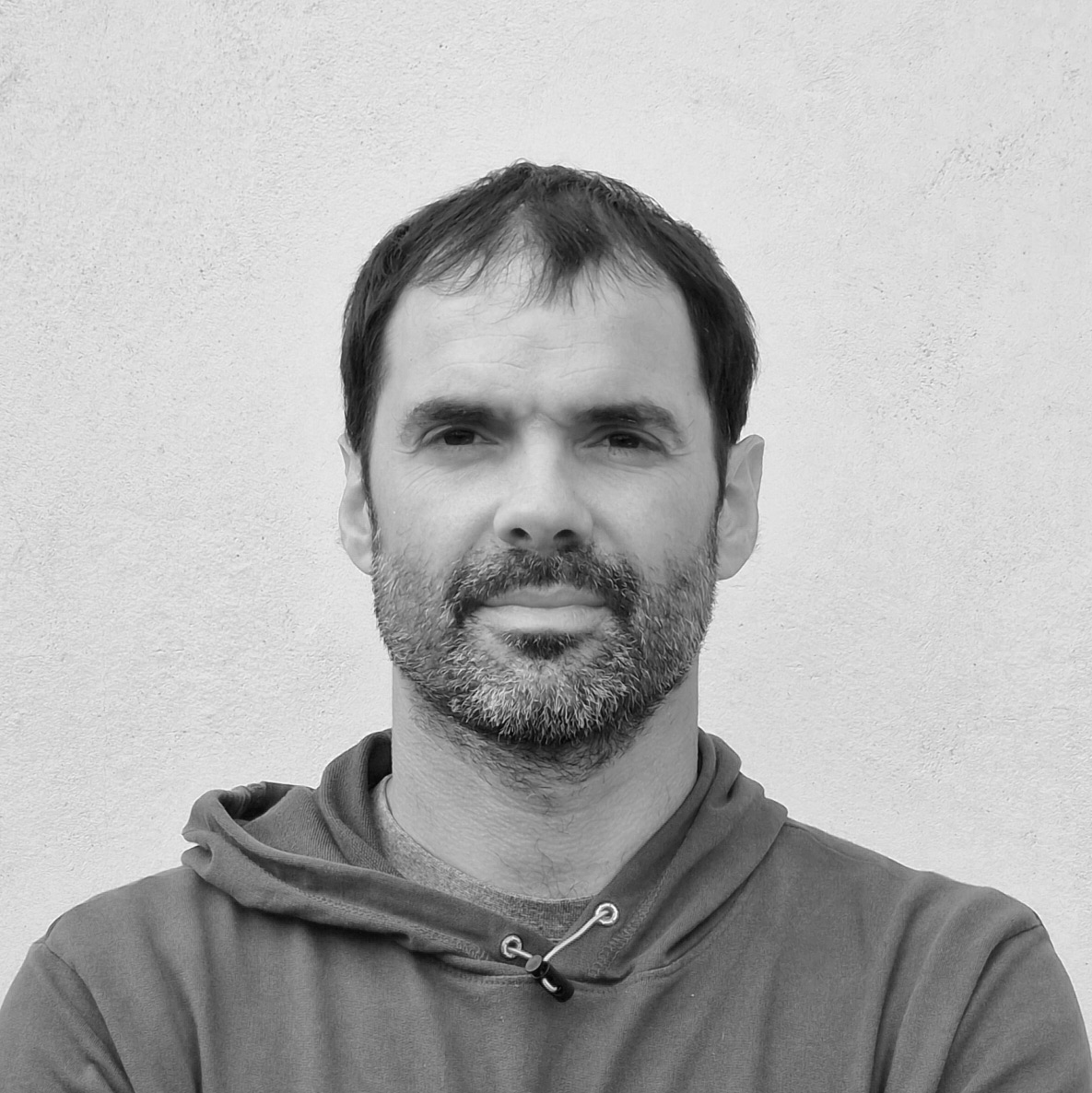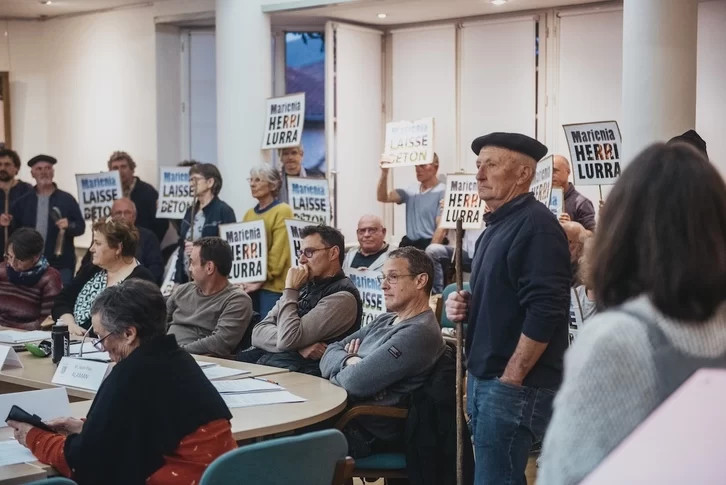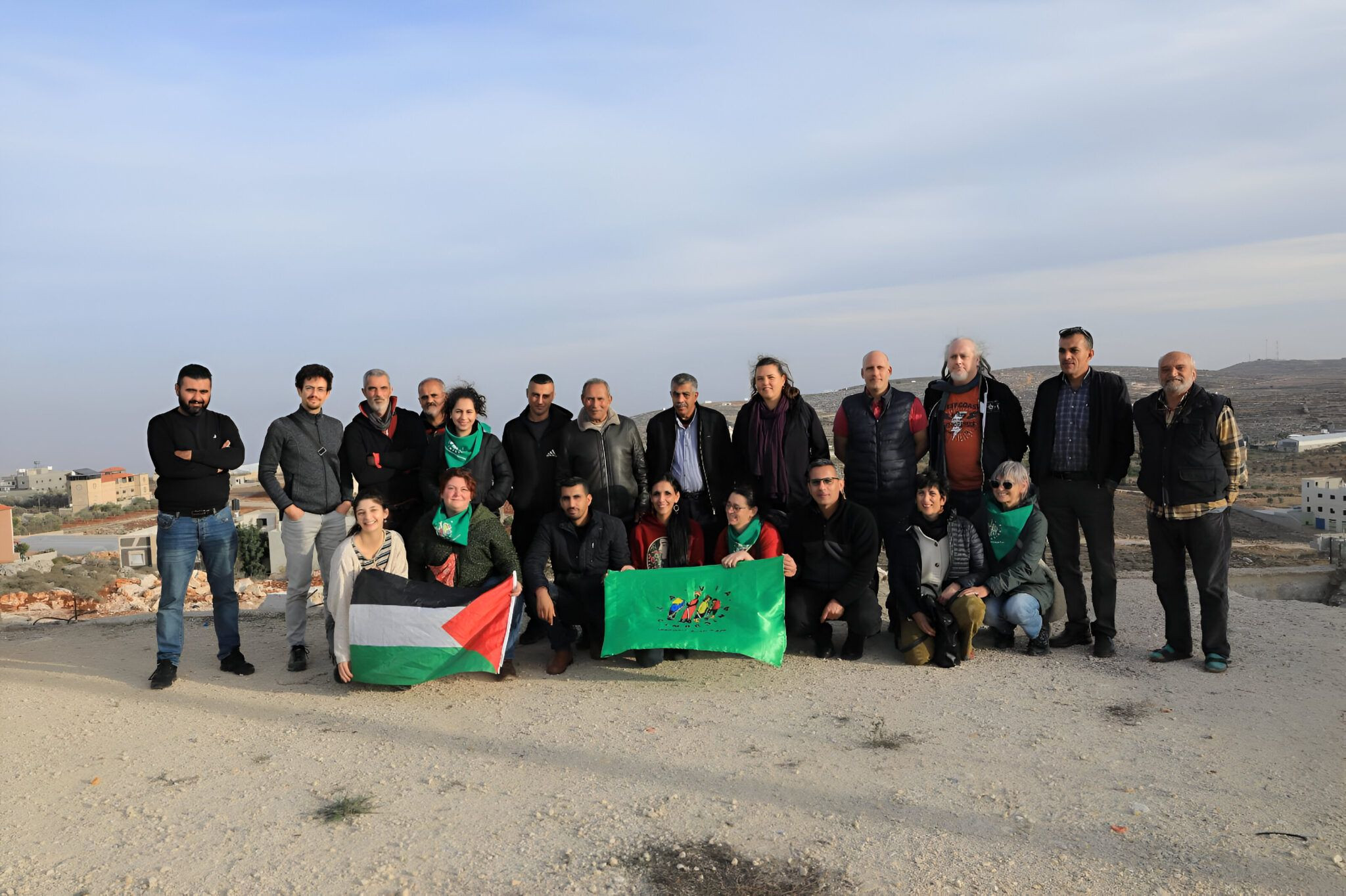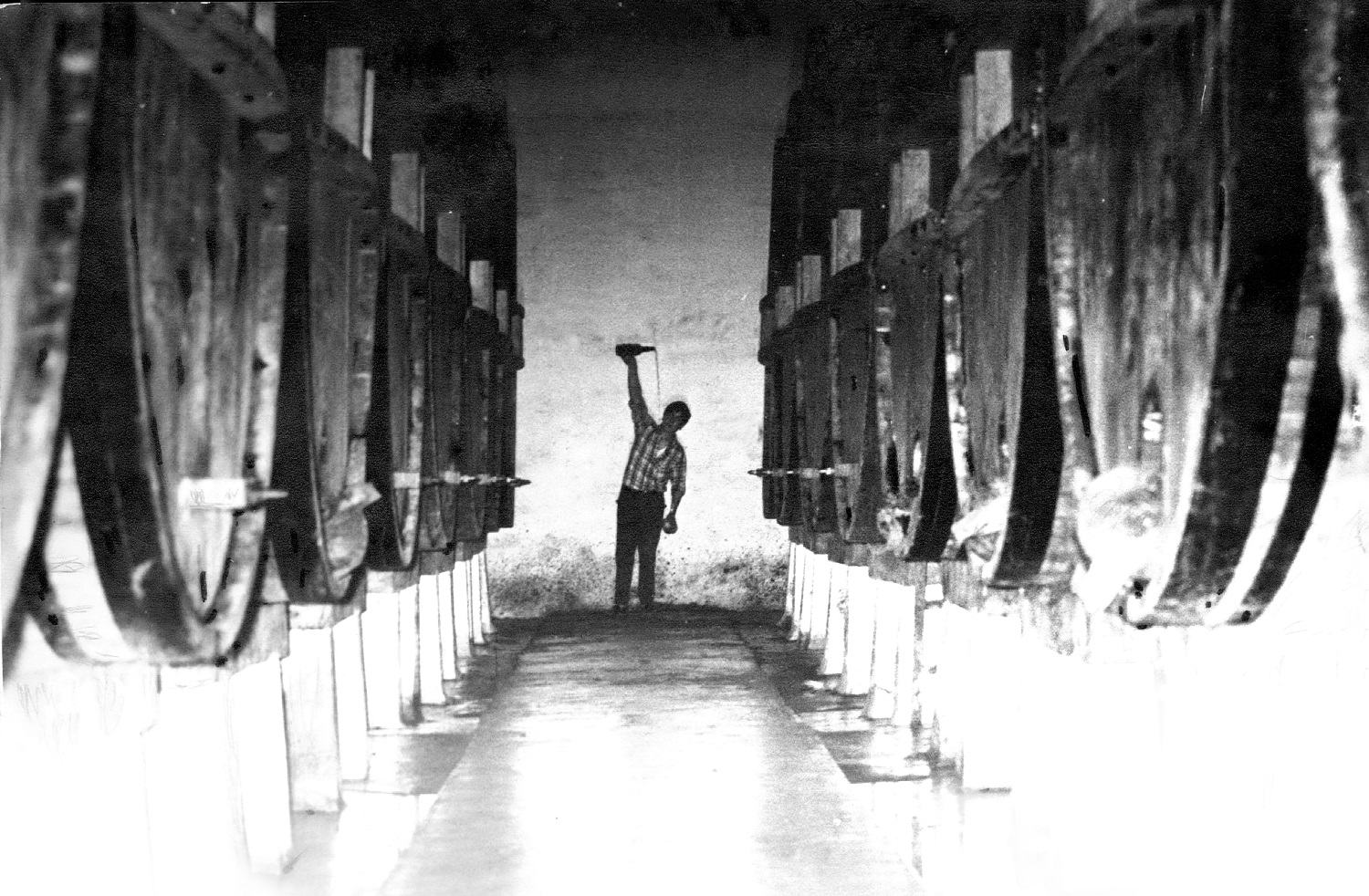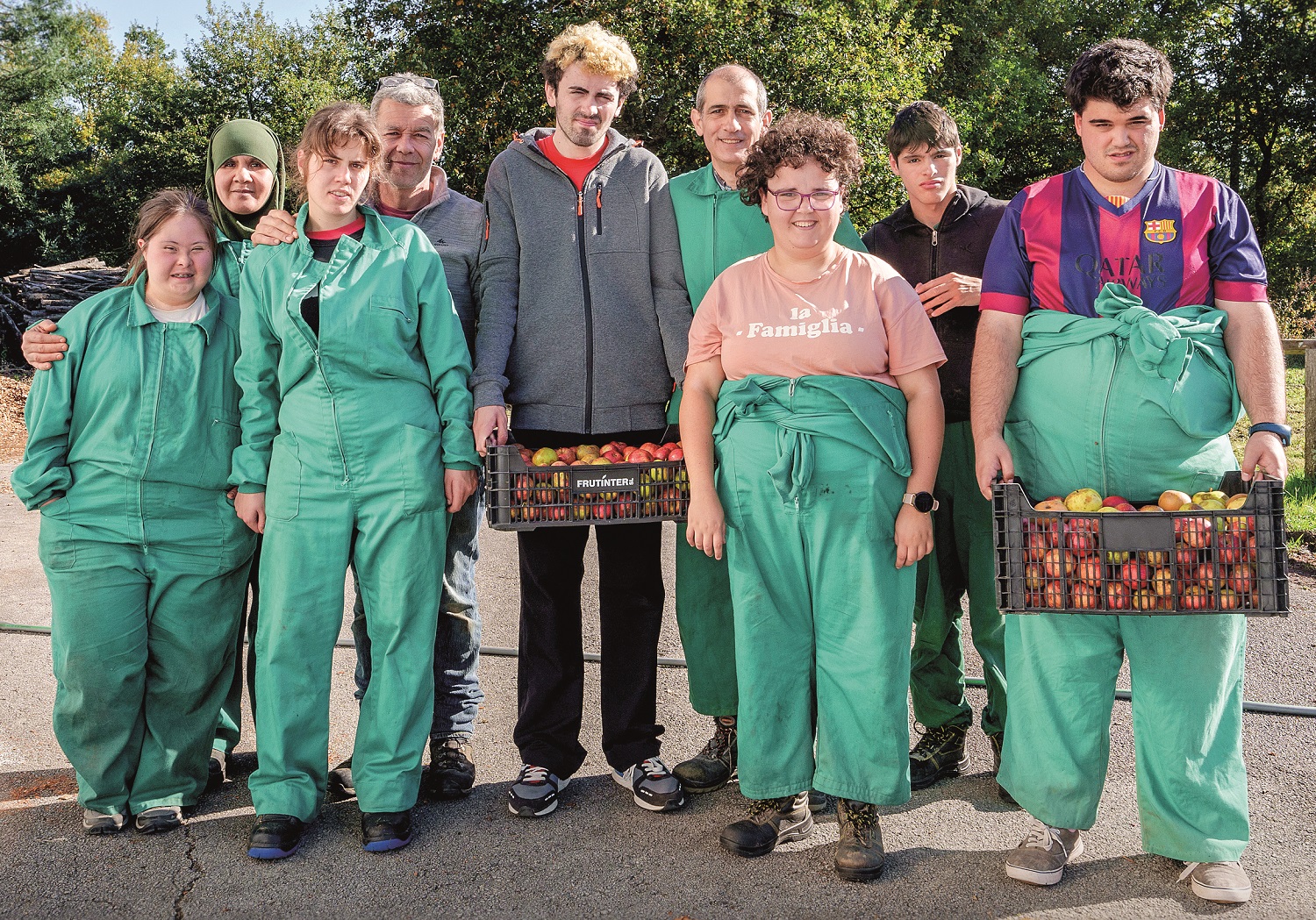Four decades of fighting for ttipi farms and implementing solutions
- The Euskal Herriko Laborarien Batasuna trade union is 40 years old. Over four decades the villages have changed, the rural world of 2022 has been able to see the one of 1982. However, in view of the evolution of the primary sector in Europe and in general in western countries, it appears that, unlike elsewhere, popular crops remain stimulating and attractive in Iparralde. The OECD militants know that it is largely the result of the struggles they led. The union was created to fight for the FDSEA production system and for four decades has been dedicated to promoting popular cultivation, clearly demonstrating that the hegemonic promotion model is not the right path.
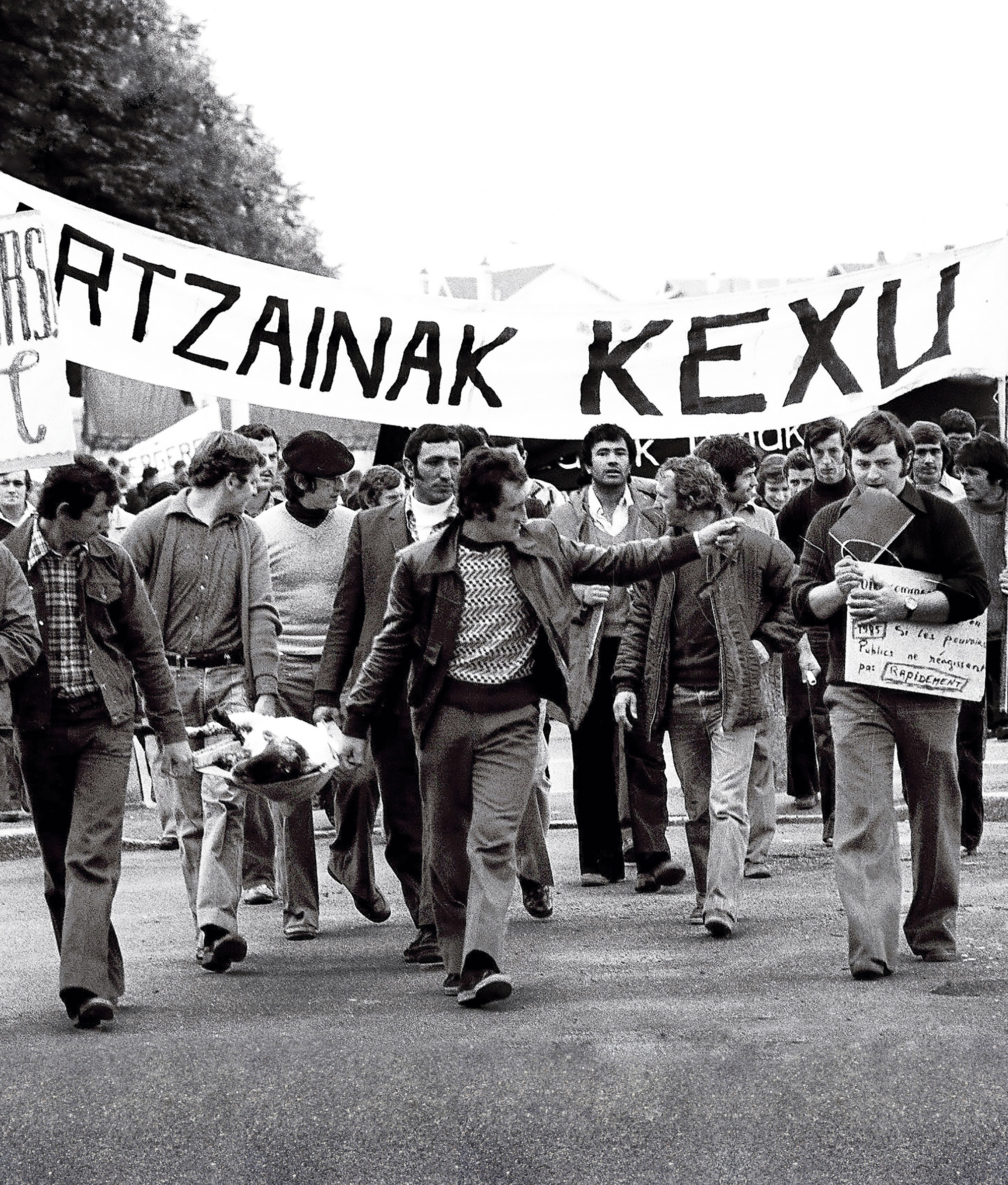
Continue within existing structures to change direction and objectives internally, or create a new structure that includes its own directions and objectives. At the end of the 1970s, a group of young peasants from Zuberoa, Baxenabarre and Lapurdi maintained a culture model that made peoples and farms live with bru jula.La alteration of the
rural world and the collateral damage resulting from the rapid domination of the time: We were on the day after World War II, they set out policies to encourage the modernization of the crop and the intensification that rimmed with it: horses and oxen were replaced by tractors and machines; they reorganized the fields, cutting trees and green barriers; the use of pesticides and chemical condiments was highly recommended ... France had a powerful machinery to achieve food self-sufficiency and the supplement to be able to export: EE.UU. They distributed the aid within the Marshall Plan, the FNSEA syndicate created in 1946, the INRA institute for agronomic research, the Agricultural Guidance Laws, the training in agricultural schools, the conditions for access to subsidies, etc., supported the promotion of the production model. They succeeded: If in 1945 ten French state crops fed 55 people, in 1975 they were saturated with 260 hangers.
But in this new model, which couldn't fit everyone, we were at the beginning of the wild disappearance of the farmhouses: 2.30 million dwellings in 1955 in France; 1.59 million dwellings in 1970; 1.26 million dwellings in 1979; by the year 2000 the barrier of the million went down, with 663,800 dwellings and at present 390,000 dwellings. In the Northern Basque Country they also decreased and the trend continues: Between 2000 and 2010 they have decreased by 840, 25% of the dwellings have disappeared for ten years.
“I already know that the word “genocide” is not mild in use, and I have been in use or not, but I have argued that they have done it because they have done everything to end the caserades,” says Jenofa Mendiboure, a Senpere grower who was at the founders of the OECD. Biarritz was a world I did not know, but in two courses on the occasion of the cultivation studies he soon understood what he did not want: “At 22, I discovered everything. He had two experiences, one, together with Donapaleu, the peasant who drowned under the debts, but tried to get them out always and more, and the other, in the department of Charrente, that man always wanted to expand, he wanted all the lands that were being freed, it was only high!” He discovered in school – not in courses, but through colleagues – the path he was going to take: “I met some girls from Brittany, who were on the move Travailleurs paysans, who started organizing with Bernard Lambert [the socialist wrestler].”
.jpg)
“Citizens have joined our struggle, that is a force, our struggles have spread, they are rooted in the spirit of
citizenship” Panpi Sainte-Marie
FDSEA encouraged and encouraged the presence of this group of farmers who saw the need to act against this reality. But where would they be most effective? From within or after the FDSEA, creating another union? That was the question. This debate already existed in other French regions, but here the special connection with land was added: They were in the Basque Country, in a territory in which the productive model of production drawn from the offices of the FDSEA had no place – the mountain area, the houses ttipi, the land, culture, language and the rapid relationship with the house... – and felt the need for an agent to respond to local particularities. This objective arises with the involvement of JAC in the young Catholic movement of the rural world.
While they were conducting the debate, the FDSEA and the CDJA [young union linked to the FDSEA] continued to insist. “These young people committed not to agree with the ideas of these structures, but if all the other peasants were there to be able to leave with them,” said Peio Iralur, founder of the CoR. They took positions of responsibility and decision and even managed to channel actions and slogans that had not previously been seen within the FDSEA, igniting their superiors’ complaint. To name one, agalakzia disease violently infected the sheep flocks of Iparralde in the late 1970s, and the response of Bernadette Oillarburu among the founders of the ELB stands out. The Pau hull and the FDSEA pyramid did not help the affected pastors and those who would set up the ELB, on behalf of the FDSEA, were mobilized from there: “Only corn, maize, maize and meat cows [FDSEA] had in mind, they did not move to compensate pastors. We held a demonstration and also went to the prefecture to process the compensation dossiers.” The photo on the cover of this LIGHT is taken at that moment.
The dispute did not stop immediately and lasted long: from seven to eight years. They had a group – the group of 40 – in which 40 nationalist peasants met in the FDSEA and in the CDJA, to make an analysis of the primary sector, to reflect on the whims of the peasants, to agree on the demands and strategies for fighting... The idea of the ELB trade union would have matured in group 40. The farmers on the French left, including Bernard Lambert himself, were brought to enrich the reflection.
Decision accelerated by women's charter
The victory of François Mitterrand of the Socialist Party in 1981 over the French presidency reinforced the possibility of creating a new union. In fact, the FDSEA had committed itself to putting an end to the monopoly it had so far, with sufficient fite. On October 30, 1982, Euskal Herriko Laborarien Batasuna created the Union of Farmers of Euskal Herria, as a result of the fact that this syndicate was “totally savory” and that something could be changed inside. They were part of the French National Confederation of Agricultural Workers Unions (CNSTP).
But another decisive factor was: Letter written by women in group 40 on 3 December 1981. After several arguments the letter was finalised as follows: “We don’t want to be FDSEA members anymore. We're told it's a good time to do something. We are only women among those who make the decision, but we do not speak on behalf of the wives' committee and you all have the door open. If we were many, we would have more conditions for a rapid structure, with legal advisers and animators. We are working with a worker from the National Confederation of Agricultural Workers Unions (CNSTP) to convene a working meeting, especially information. The date will soon be specified. After this meeting we could imagine something to create.” The signatories recall that the letter was read at the meeting and was received with good eyes. Hence the CoR would be established in October 1982. Others chose to form the FSP trade union, linked to the Socialist Party, but it did not last long.
“We are not only a union that fights, but also a union that builds. The many existing structures were created by the
OECD” Jenofa Mendiboure
A group of 22 members who brought together representatives from the cantonments of the Northern Basque Country and from each production section began to meet regularly and was a timid group of six farmers, whose mission was to chair the union – because they did not want to be the sole leader – Jio Iralur, Jenofa Mendiboure and Bernadette Oillarburu, also founded by Kazakhstan.
A year later, 29% of the votes in Iparralde
Elections were held in 1983 in the Chambers of Agriculture managing the primary sector and the OECD obtained 29% of the votes at the level of the Northern Basque Country. This first campaign was carried out by spreading the message in favor of the Ttipi farms, visualizing the damage of the production system promoted by the FDSEA.
.jpg)
Jenofa Mendiboure recalls that in the quota system established in 1984 for the cow's milk sector he fought to allocate production rights to typical farms, where they received the attention and recognition of the peasants: “The issue of quotas was very important, we fought for Ttipal farms and the farmers saw that we were the only ones who wanted to offer them something. We fought and saw him for the amount of milk that was delivered to the Ttipi farms.”
The fight for cow's milk quotas was important, but as such, the CoR has been very much involved. They were based on a wide and determined network of militants, to which a good group of people approached the acts and manifestations they performed. “It was not as in the current demonstrations that the demonstration was organized and people were approaching... There was a great underlying job, we called people one, asking to come. But people did,” Mendiboure says.
However, the FDSEA were dedicated to dazzling their name and their work. Contempt and insult were violent, linking from the beginning to the figure of the ttipi and incapable union ELB and the "posante bomb". They clarified their own, with a document published in January 1984, which did not correspond to the choice of the use of violence, to which a second was added denouncing the repression of States and the murders of Basque refugees. Forty years have shown us at times of blockade that they have prioritized the ways of civil disobedience and direct action as tools of struggle.
“The peers have always told us ‘Make policy for the culture classes’, which explains how some farms that practice well at ELB are not.” The ELB was created, held by the nationalists and today the nationalists are still in this trade union struggle. But the 600 union members are not all nationalists, as detailed by OECD Secretary-General Panpi Sainte-Marie: “We have managed to go to the crete: we have managed to maintain the balance between trade unionism – defending the peasants and carrying a cultivation and food project – and that passion to decide here as citizens of this territory. In decision-making centers we are nationalists, but decision-makers always think of the peasant who hears us, who can be the peasant of Ezterentzubia, who can vote French, because we are fighting for that and for everyone”.
Completing the list would be too long, but it can be summarised that the battlefield is broad and that some elements are: supporters of ensuring continuity by installing young people in the farmhouse, opponents of land speculation, supporters of decent income for work, GMOs, quality production, a common agricultural policy promoting typical farms, the denunciation of industrial imbalances. It is a union that, in addition to defending the typical farms of Euskal Herria, is mobilized in defense of the rights of the citizens of the world. That is why he is part of Confederation Paysanne and also of the international trade union Via Campesina.

“They are the managers of a system.” We are a fighting union, ready to go against the law. Those who really come to the head to defend the peasants are us, you do not see the FDSEA in the courts. We do not want to manage this system, we think we should change it. So far, capitalism, more or less, has done a lot of harm to us. How many farmers have disappeared? How many farms have been emptied?” says Sainte-Marie.
But they are also involved in other territorial struggles: the institutional recognition of Ipar Euskal Herria in the Batera platform that asks for the cooficiality of the Basque Country and the Basque University; in the Lizarra-Garazi agreement of 1998 and in the initiatives organized today by Bake Bidea; in quotes such as Deiadar and Korrika, etc.
Creating lots of structures
“We are not just a union that fights, but also a union that builds it. If there is a popular crop in the Northern Basque Country, it is thanks to the OECD. The OECD has not done everything, but many of the current structures were created by the OECD”, says Mendiboure.As an example, we can cite the recent creation in
1979 of the Earth GFA, a structure to support the collective purchase of land and the installation of the landless and which is the predecessor of Lurzaindia, currently active, and the popular management of the Association AEGEAN.
2001: first force in Iparralde
The Departmental Chamber of Agriculture did not respond to the reality of Zuberoa, Baxenabarrena and Lapurdi, so soon the demand for its own structure for Euskal Herria flourished. Being systematically rejected by peers and Paris, they completed the 2001 election campaign with the following message: if we win, we will create the structure that Ipar Euskal Herria needs. The change occurred in these votes, where for the first time it was the winner with 51.16% of the votes of ELB, Zuberoa, Baxenabarrena and Lapurdi, 45.30% of FDSEA. “The results are twenty years of award and they will give us a lot of credibility and a lot of strength to keep fighting,” Berhokoirigoin said on the night of the votes.
Bearing in mind the results of Bearne, at the departmental level the FDSEA continued to gain and in the office of the Chamber of Agriculture it was decided not to include ELB – in addition, rejecting the distribution of chairs that took into account the results of Ipar Euskal Herria, of the 33 seats only two were offered to those of the OECD.
OECD voters Berhokoirigoin and Maryse Cachenaut tabled a motion for the creation of a structure for the Northern Basque Country, but the majority of the Pau decided that it was not up to the Chamber of Agriculture to decide on it. Unable to withstand the blockade, the two of the OECD left the meeting room and did not return. Four years later they were linked to the construction of the Basque Country Culture Chamber.
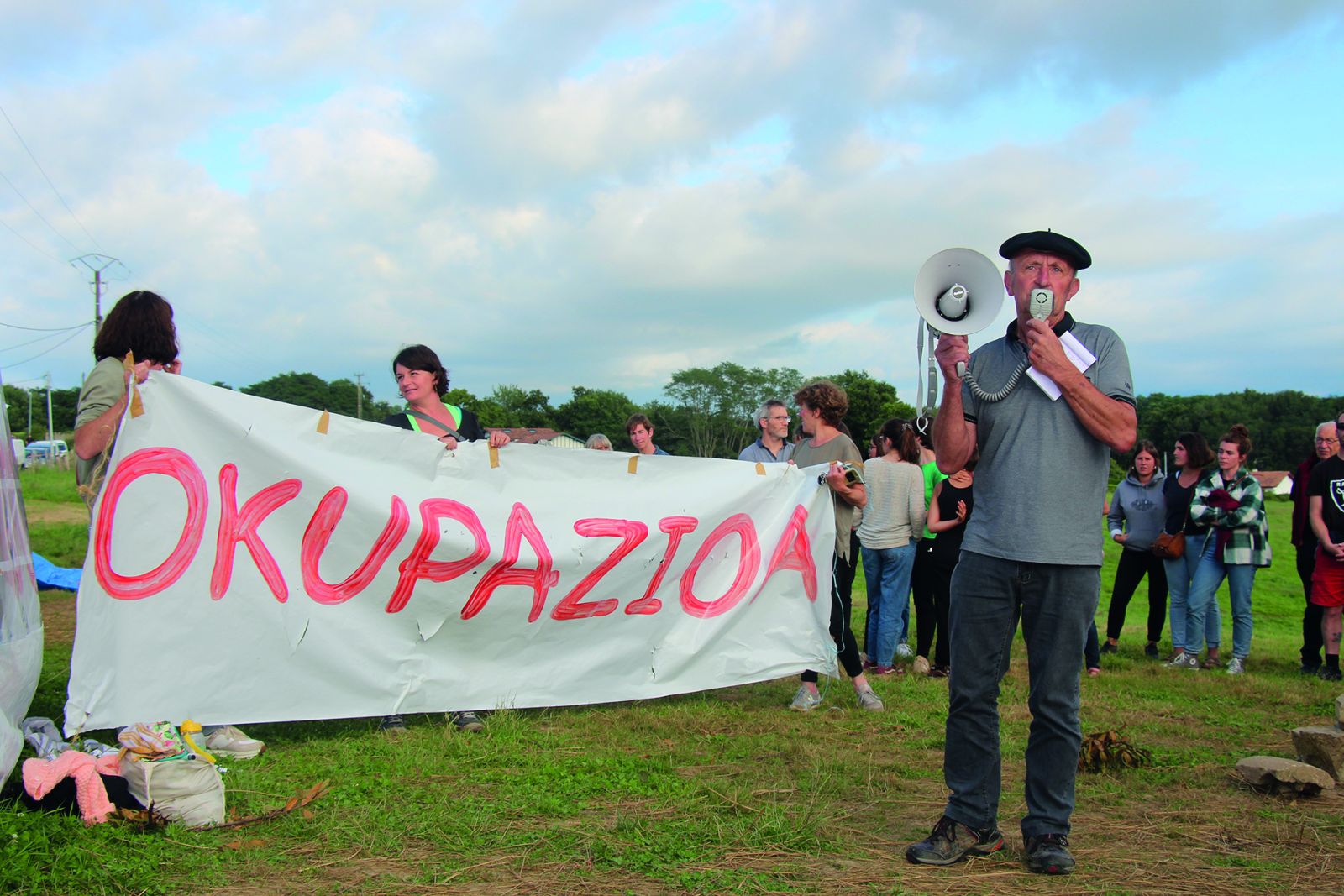
1,000 people were welcomed on 15 January 2005. The FDSEA also had to cope with the constraints imposed by the French Government during the first few years – the consideration of illegal EHLG, the rejection of subsidies, the long list of issues – all won by EHLG – the pressures of various kinds. “These issues have really bothered us and accelerated us at the same time. And I think we've gained an important part of the world of work and society. They have seen that our struggle was right and necessary,” said Berhokoirigoin, defendant as president of EHLG. The support of hundreds of citizens gathered before the court in the days of their appearance.
Sainte-Marie also influences this idea when she assesses the last 40 years: “We have always said that cultivation is not just a matter for farmers, and that citizens should help us, because in the end we are producers of what they eat. That is why we also talk about “agricultural and food policy” and not just agricultural policy. We have achieved this openness and the people have joined our struggles. That is a force, our struggles have spread, they are rooted in the spirit of citizenship. We have always said that we are not a corporate union, today it really feels.” It shows examples of fighting land speculation or protests to denounce measures against avian influenza.
Twenty years after that first period, the OECD remains the first peasant force, with more than 54% of the votes cast in 2019. This support from farmers and citizens is essential because Sainte-Marie gives strength to the struggle. The union also has a group of young people, where there will be militants tomorrow. However, the spokesman sees the weakening of the militancy suffered by most structures. Among the reasons: “There were more people in the OECD before. But we have created so many structures where people are needed in all and our forces are scattered. All the structures we have created need people involved... Apparently, that is a reward for success.”
.jpg)
Asked how he sees the future, Sainte-Marie puts the answer in a summer driven by dryness and food speculation: “There are some farmers who are very ill, two or three who will drown like this summer! They cannot be told more ‘produce more, make a new loan and you will be better’. It is becoming clear that the FDSEA message is not valid. That’s the message we need to break forever.” Breaking and spreading the message of equals, as they have done over the past four decades.
.jpg)
He died accidentally in 1984 and the sudden accident left the network of left peasants amidst deep sorrow. Also from Euskal Herria the labradores went to the bulls to make the last greeting that was owed to him. Three years later, from the ideas sown by him, the Confédération Paysanne union, which is also made up of the OECD, would emerge through the union of the CNSTP and the FNSP, the National Federation of Farmers’ Unions.
Datorren astean Departamenduko Laborantza Ganbarako hauteskundeak ospatuko dira Ipar Euskal Herrian. Frantzia mailako FDSEA eta CR sindikatuez gain, ELB Euskal Herriko Laborarien Batasuna aurkezten da, "euskal laborarien defentsa" bermatzeko.
Euskal Herriko Laborantza Ganbera elkartearen hogei urteak ospatu zituzten asteburuan Ainhize-Monjolosen. 2005eko urtarrilaren 15 hartan sortu zuten Lapurdi, Baxenabarre eta Zuberoako laborantzaren garapena –hori bai, iraunkorra eta herrikoia izan nahi duena–... [+]
Departamenduko Laborantza Ganbarako hauteskundeen kanpaina abiatu da. Urtarrilaren 14an bozetara aurkezten diren hiru sindikatuen ordezkariekin bi oreneko eztabaida sakona antolatu zuten Euskal Hedabideek, osoki euskaraz.











